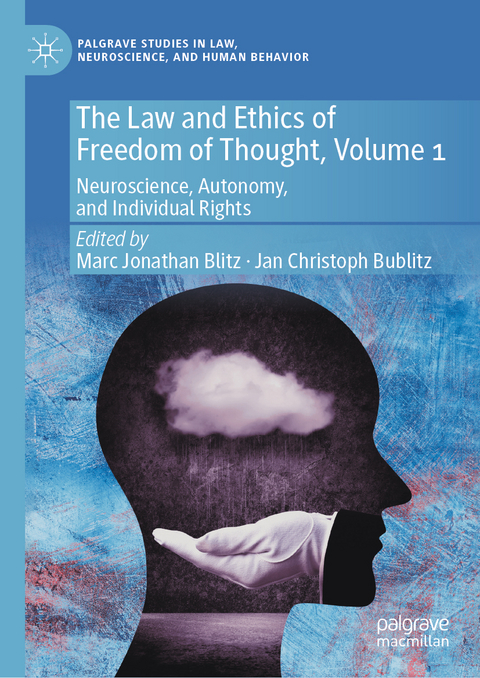
The Law and Ethics of Freedom of Thought, Volume 1
Springer International Publishing (Verlag)
978-3-030-84493-6 (ISBN)
lt;p>Marc Jonathan Blitz is Alan Joseph Bennett Professor of Law at Oklahoma City University, USA. His scholarship and teaching focus on how emerging technologies - such as cognitive enhancement, brain scanning technologies, and virtual and augmented reality - raise questions about freedom of speech, privacy, and other areas of American constitutional law.
Jan Christoph Bublitz is a researcher at the Faculty of Law at Universität Hamburg, Germany. His research focuses on criminal law, legal theory, and human rights law, often with an interdisciplinary twist. He was awarded the Young Scholar Prize of the International Association of Legal and Social Philosophy for studies on the right to freedom of thought.
1. Freedom of Thought in Political History (Lucas Swaine).- 2. Freedom of Thought: Who, What, and Why? (Simon McCarthy-Jones).- 3. Freedom of Thought as an International Human Right: Suggestions for a Theory of a Living Right (Jan Christoph Bublitz).- 4. Freedom of Thought and the Structure of American Constitutional Rights (Marc Jonathan Blitz).- 5. Why Is It Wrong to Punish Thought (Gabriel S. Mendlow).- 6. Autonomy, Evidence-Responsiveness, and the Ethics of Influence (Fay Niker, Gidon Felsen, Saskia K. Nagel & Peter B. Reiner).- 7. The Ethics of Memory Dampening (Adam Kolber).- 8. Cognitive Liberty of the Person with a Psychiatric Disorder (Mari Stenlund).- 9. Technology Against Technology: A Case for Embedding Limits in Neurodevices to Protect Our Freedom of Thought (Andrea Lavazza).- 10. Varieties of (Extended) Thought Manipulation (J. Adam Carter).
| Erscheinungsdatum | 08.12.2021 |
|---|---|
| Reihe/Serie | Palgrave Studies in Law, Neuroscience, and Human Behavior |
| Zusatzinfo | XXIX, 317 p. 3 illus., 2 illus. in color. |
| Verlagsort | Cham |
| Sprache | englisch |
| Maße | 148 x 210 mm |
| Gewicht | 580 g |
| Themenwelt | Geisteswissenschaften ► Psychologie ► Biopsychologie / Neurowissenschaften |
| Medizin / Pharmazie ► Studium | |
| Schlagworte | Cognitive Liberty • First Amendment • freedom of thought • individual autonomy • Informational privacy • Intellectual Privacy • mental freedom • Neuroethics • Neuroscience and Technology • privacy • Surveillance • Surveillance Methods |
| ISBN-10 | 3-030-84493-5 / 3030844935 |
| ISBN-13 | 978-3-030-84493-6 / 9783030844936 |
| Zustand | Neuware |
| Informationen gemäß Produktsicherheitsverordnung (GPSR) | |
| Haben Sie eine Frage zum Produkt? |
aus dem Bereich


